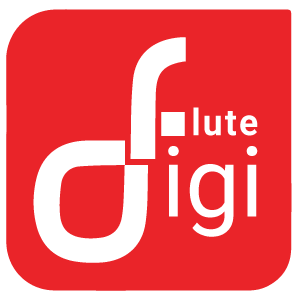A Deep Dive into ChatGPT’s Top 1,000 Citations and Their Impact on Digital Marketing Strategy
Artificial intelligence, especially language models like ChatGPT, has revolutionized how content is generated and information is accessed. But how reliable are the sources that ChatGPT relies on? Recent research reveals a surprising trend—67% of ChatGPT’s most frequently cited sources are off-limits for marketers. This critical insight reshapes how digital marketing professionals approach AI-assisted content and SEO strategies. This blog explores these findings, delves into the implications, and provides actionable guidance for marketers navigating this evolving terrain.

The Citation Breakdown: What’s In and What’s Out?
Researchers analyzed ChatGPT’s top 1,000 citations, revealing a striking statistic: 67% of these sources are “off-limits” for marketers. These off-limits categories include scholarly journals, proprietary data, premium content behind paywalls, and specialized repositories that marketers typically cannot influence through traditional SEO or content marketing efforts. The remaining 33% consist of more open, accessible sources that marketers can target to gain visibility and improve their online presence.
What Constitutes Off-Limits Sources?
- Academic journals and research papers, often behind paywalls
- Specialist databases requiring subscriptions
- Proprietary or exclusive content platforms
- Government and institutional reports not easily optimized for SEO
What Can Marketers Still Influence?
- Blogs and open-access articles
- News websites and press releases
- Publicly available business and marketing sites
- Popular forums and user-generated content platforms
The Impact on SEO and Content Marketing
The revelation that two-thirds of ChatGPT’s cited sources are inaccessible poses challenges for marketers relying on AI-generated insights. SEO professionals who previously presumed equal opportunity to rank via AI citations need to reconsider their strategies. This landscape demands a focus on quality, accessible sources and innovative content strategies that bridge the gap between marketers and AI’s influential information.
Why This Matters: Trust, Authority, and AI Content Generation
ChatGPT’s citation behavior greatly impacts trust and authority perceptions. By drawing predominantly from authoritative but less accessible sources, it may limit marketers’ ability to replicate or compete for similar authority. This influences not only organic search visibility but also the quality and credibility of AI-generated content marketers deploy.
Navigating the Off-Limits Terrain: Strategies for Marketers
While the high percentage of off-limits citations may seem discouraging, marketers can adapt and thrive by employing smart tactics designed to work within these constraints:
1. Leverage Accessible Authority
Focus on building strong, authoritative content hosted on accessible platforms that AI models can cite. This includes user-friendly blogs, industry news, and trusted third-party guest posts.
2. Collaborate with Scholarly and Institutional Sources
Build partnerships or contribute to open-access journals or whitepapers, making your expertise more visible in the AI knowledge ecosystem.
3. Optimize for AI Referential Patterns
Create content that aligns with AI citation preferences, such as clear, well-structured facts, data transparency, and reliable referencing from recognized sources.
4. Use AI for Content Amplification, Not Sole Reliance
Blend AI-generated insights with original research and proprietary content that differentiates your brand.
Additional Findings: The Untapped Citation Potential
The study also revealed intriguing side notes about ChatGPT’s citation habits:
- 28% of the most cited pages have zero organic traffic, showing that AI’s source popularity doesn’t always align with SEO metrics.
- Only 12% of AI-cited URLs rank in Google’s top 10 search results, signaling a disconnect between AI’s citation and Google’s ranking algorithm.
- The diversity of sources cited is narrower than expected, highlighting an opportunity for marketers to influence future AI knowledge bases by diversifying content types.

Conclusion: Embrace New Opportunities in AI-Driven Marketing
ChatGPT’s citation pattern uncovers a profound shift in digital marketing dynamics, emphasizing the importance of accessible, authoritative content and strategic partnerships. Marketers who understand these nuances can position themselves for success in AI-assisted marketing landscapes. Focusing on creating valuable, AI-friendly content and leveraging accessible channels is the key to unlocking the power of AI citations for business growth.
What Marketers Should Do: Chart Your AI Content Strategy Today
Are you ready to adapt your SEO and content marketing tactics to the realities of AI citation? Explore fresh opportunities by auditing your accessible content, building strategic collaborations, and optimizing your content for AI referencing. The AI future is bright for marketers who evolve their strategies thoughtfully and proactively. Would you like to discuss more about the opportunities to incorporate the use of AI into your business or leverage the power of AI or LLMs to observe digital growth? If yes, here’s your chance to discuss it with our experts. Reach us now to book a consultation.







